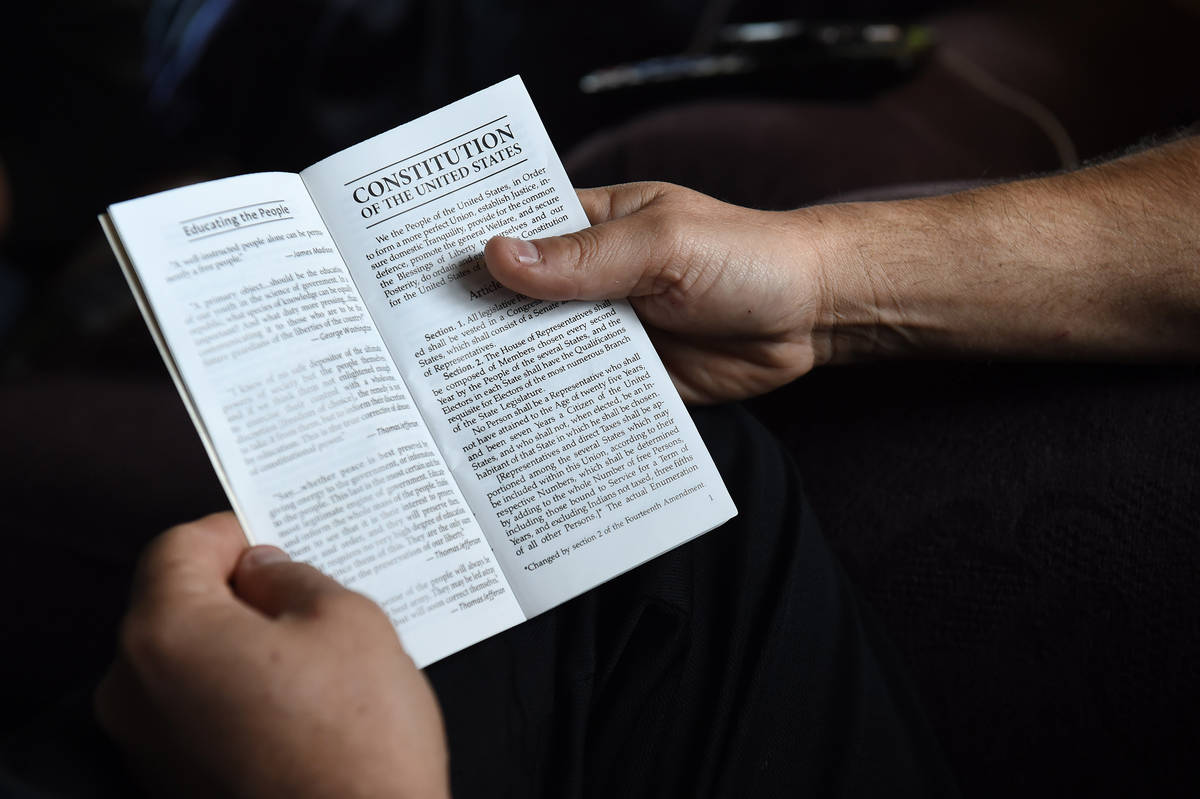EDITORIAL: The dangers of making free speech an enemy
This year will forever be remembered as the year of the coronavirus, of course. But the overwhelming disruption of the pandemic overshadowed several important trends and developments over the past 12 months, not the least of which was the left’s continued alienation from the concepts of free speech and expression.
It has become de rigueur in progressive circles to view free speech not as an inalienable right but as a tool used to oppress the marginalized. Just months before the pandemic struck, The New York Times published an op-ed from a staff writer for the New Yorker who argued that we must rethink the First Amendment to allow the government to police “hate speech.” That perspective has infested many college campuses and continues to take root.
Even left-leaning institutions that were once proud, principled defenders of open and unrestrained discourse have begun to wither. For example, an internal ACLU memo leaked in 2018 recommended that the group reconsider defending unpopular groups in free speech disputes. This reflects an intellectual confusion and incoherence about the relationship between free speech and power. After all, if it’s OK for you to enlist the vast apparatus of the state to suppress thoughts that you find distasteful, what happens when your own speech falls into disfavor?
“I used to joke that when people would say the trouble with free speech in America is that so few people support it,” Ira Glasser, the longtime head of the ACLU said in a recent interview with Nick Gillespie of Reason magazine, “my response was always, ‘No, you’re wrong. Everybody in America supports free speech so long as it’s theirs or people they agree with.’”
Mr. Glasser spoke at length during the interview about the dangers of the growing progressive attacks on free speech, which began gaining traction in the 1990s at many universities when students demanded speech codes and craven college administrators obliged.
“They imagined themselves as controlling who the codes would be used against. Speech restrictions are like poison gas,” he said. “It seems like it’s a great weapon to have when you’ve got the poison gas in your hands and a target in sight, but the wind has a way of shifting — especially politically — and suddenly that poison gas is being blown back on you.”
The former ACLU chief recounted his troubling episode recently while participating in an event at a top university. His experience should merit consideration from those on the “woke” left who advocate for a new authoritarianism in pursuit of their vision of economic or social “justice.”
“I went to one of the half-dozen best law schools in the country a year or two ago to speak,” Mr. Glasser recounted. “And it was a gratifying sight to me, because the audience was a rainbow. There were as many women as men. There were people of every skin color and every ethnicity. It was the kind of thing that when I was at the ACLU 20, 30, 40 years ago was impossible. It was the kind of thing we dreamed about. It was the kind of thing we fought for. So I’m looking at this audience and I am feeling wonderful about it. And then after the panel discussion, person after person got up, including some of the younger professors, to assert that their goals of social justice for blacks, for women, for minorities of all kinds were incompatible with free speech and that free speech was an antagonist. …
“I said this to the audience, and I was astonished to learn that most of them were astonished to hear it — I mean, these were very educated, bright young people, and they didn’t seem to know this history — I told them that there is no social justice movement in America that has ever not needed the First Amendment to initiate its movement for justice, to sustain its movement for justice, to help its movement survive. …
“And that’s historically and politically true without exception. For people who today claim to be passionate about social justice to establish free speech as an enemy is suicidal.”

















